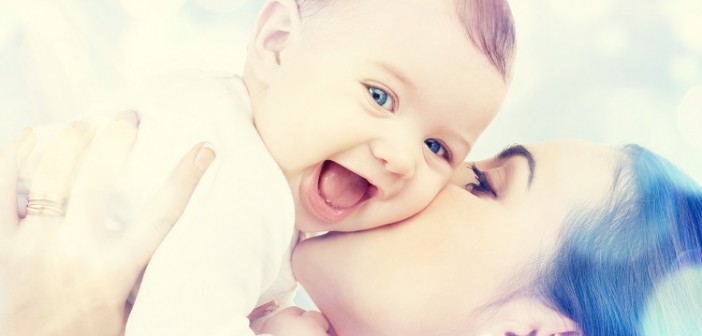Most first-time parents have never heard of routine dental visits for infants and toddlers. Very young kids seem to do fine with no professional attention. Surely it’s only when the kid turns four or five that they even begin running the risk of dental decay, goes the thinking. Nature takes care of good dental health until then?
Actually, no
It can seem a funny thing idea taking a baby out to a dental appointment when she barely has five or six teeth out. According to a leading pediatric dentist in Utah county, though, it is universally recommended by experts that every child visit the dentist well before their first birthday. Past that point, babies need both regular oral hygiene, and regular visits to the dentist twice a year.
In some cases, though, an exception can be made. Babies who have gained enough physical control to be able to handle drinking from a cup (instead of from the bottle), and who don’t need a feeding in the middle of the night, can go without a dental visit for a few months until these stages are reached.
When a baby starts on her midnight snacks and drinks, she exposes her teeth to corrosive bacteria. It’s time to get some attention. For as long as your baby doesn’t do this, a dental visit isn’t strictly necessary. Most babies, though, begin to quickly transition to higher levels of dietary need by the time they hit the age of one.
How bad can things get, anyway?
A CDC report has found that between the years 1994 and 2004, the incidences of cavities in children between the ages 2 and 5 shot up fourfold. At one point during the study, dental caries were found to affect 70% of all American children under five. There’s a specific for it — ECC, or early childhood caries. The National Institute of Dental and Cranial Facial Research terms dental caries the most widespread chronic disease seen in children.
If it’s still hard to understand how urgent a health concern infant dental health is, here’s a different way to look at the problem: by the time kids reach age four, nearly one in three of them have received fillings. In other words, if you were to ask all the parents of young children your street, a sizable number would say that they had been to a pediatric dentist.
While children may have a set of teeth to begin, it is no insurance against dental decay. Things can quickly go downhill. It takes active work to keep a baby’s teeth as healthy as they are to start.
Visits to dentists can start great pattern of dental care education
At a very young age, baby teeth haven’t had very long to get infected, and are relatively safe. An early visit to a dentist isn’t usually about breaking out the drill. Instead, it’s about education and good habit formation. Parents learn about how dental infections happen, about brushing techniques, feeding techniques, and the exact ways in which foods pose a threat. It is the right education that helps keep caries away.
For instance, babies clearly love sweetened beverages, and in many homes, spend a lot of time sipping on them. While it isn’t a bad idea to give a baby sweetened juices and other drinks that she loves, it’s important to clean up right afterwards, and make sure that these juices aren’t a habit several times a day.
It’s also about learning hygiene habits. It can be hard to brush a babies teeth, and dentists can offer all kinds of new advice. For instance, using fluoridated water is a great way to help clean a baby’s teeth when the baby isn’t very cooperative. Fluoridated dental wipes can be useful, as well.
It’s important to look for a pediatric dentist
Pediatric dentists are fully qualified dentists, but have additional training in helping very young patients. The practices adopted at these dental offices tend to be nothing like at regular dental offices. The baby isn’t placed in a dentists’ chair. Rather, she sits in the dentist’s chair, and has her teeth tested with toy-shaped tools. There are likely to be fun and games all around, as well, all meant to put the child at her ease. One of the top benefits of early child dental visits is the trust built up for dentists.
While you’re at it, you may also want to get yourself checked out
There is a large body of research that indicates that early childhood caries is an infection. It comes from the bacteria Streptococcus Mutans, and it is transmitted through the intimate care and handling that babies receive from their primary caretakers. The healthier you are, the healthier your baby will be.
Dr. Adam Shepherd is a Board Certified Pediatric Dentist and a Diplomate of the American Board of Pediatric Dentistry. He graduated Magna Cum Laude from the State University of New York at Buffalo School of Dental Medicine in 2009.




